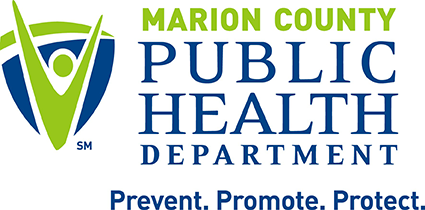School Sign Up
Sign up for testing via our online scheduler. Share your school contact person, as well as the number of children in first grade or younger. Our office will prepare forms in English and Spanish, based on the information you provide, and confirm your requested test date, or provide an alternative date if necessary.
Get StartedLearn About LeadLOOK UP PROPERTY HISTORY
Are you curious about a property’s lead history? Find out! Knowing that history will help you make informed decisions, especially if you live with small children. Look up an address to find out if a lead history exists.$38k
per child$38k
per childAverage cost of special education for children with elevated blood levels over three years*
<12%
<12%
Children tested for lead in Marion County in 2016
1.5
1.5
Likelihood of children in Marion County to have high blood lead levels compared to other parts of the country
Most children with lead poisoning have no symptoms, so testing is crucial. It’s the only way to find out if children have high blood lead levels.
For centuries, lead has been used for many purposes, resulting in widespread distribution in the environment. Lead lurks in paint in older housing and in soil and dust where it has built up over decades. In Marion County, our older housing stock puts children in our community at risk. In fact, children in our county are 1.5 times more likely to have elevated lead levels compared to children in other parts of the country.
Since young children often exhibit hand-to-mouth behavior, they frequently come into contact with lead by ingesting paint chips containing lead, or soil or dust particles contaminated with lead. Young children are particularly vulnerable to lead poisoning because they absorb up to five times more ingested lead than adults.
LEARN ABOUT OUR PROGRAM
HOUSEHOLD HAZARDS
You may be surprised to learn where lead is hiding in your home. Find helpful links on the resources page.
Windows
- Do not dry-sweep or dry-dust blinds and windowsills.
- Wipe down surfaces weekly with wet rags or paper towels.
Toys
- Look up recall information.
- Install a recall app.
- Return recalled toys or take them to a hazardous waste site.
Dripline
- Don’t allow children to play under the eaves (dripline).
- Add mulch or plant grass near the house.
- Don’t plant produce near the house.
- Wash hands after spending time outside.
- Remove shoes before coming inside.
Faucets
- Run the tap 1-2 minutes before use.
- Use cold water for cooking.
- Don’t drink from outdoor spigots.
- Have your water tested annually.
- Call your water company to ask about free testing.
Soil
- Test soil for lead.
- Grow produce in raised beds.
- Plant away from buildings and roads.
- Wash produce before use.
Cookware
- Avoid using enameled pots produced prior to 1971.
- Check for a “not for food use” label.
- Don’t serve or store food in chipped cookware or dishes.
Dishes
- Don’t use chipped dishes.
- Avoid vintage ceramics made before 1971.
- Test dishes for lead.
- Check for a “not for food use” label.
Imports
- Be cautious about products you use and eat.
- Don’t buy spices while traveling internationally.
- Read about lead in food and medicine.
- Have products tested by the health department.
Floors
- Clean floors often.
- Use HEPA filters on the vacuum cleaner.
- Replace carpets with washable rugs.
Entryway
- Wipe shoes on a grooved floor mat outside.
- Remove shoes before entering.
- If you work with lead, shower before coming home.
- Wash work clothes separately and often.
Renovation
- Review the EPA guidelines.
- If your home was built before 1978, hire EPA-certified contractors.
- See the Homes page on this website.
Cosmetics
- Read labels before using products.
- Choose lead-free cosmetics with natural ingredients.
- Keep cosmetics away from children.
- Learn more about lead in cosmetics.
HOUSEHOLD HAZARDS
You may be surprised to learn where lead is hiding in your home. Find helpful links on the resources page.
Windows
- Do not dry-sweep or dry-dust blinds and windowsills.
- Wipe down surfaces weekly with wet rags or paper towels.
Toys
- Look up recall information.
- Install a recall app.
- Return recalled toys or take them to a hazardous waste site.
Dripline
- Don’t allow children to play under the eaves (dripline).
- Add mulch or plant grass near the house.
- Don’t plant produce near the house.
- Wash hands after spending time outside.
- Remove shoes before coming inside.
Faucets
- Run the tap 1-2 minutes before use.
- Use cold water for cooking.
- Don’t drink from outdoor spigots.
- Have your water tested annually.
- Call your water company to ask about free testing.
Soil
- Test soil for lead.
- Grow produce in raised beds.
- Plant away from buildings and roads.
- Wash produce before use.
Cookware
- Avoid using enameled pots produced prior to 1971.
- Check for a “not for food use” label.
- Don’t serve or store food in chipped cookware or dishes.
Dishes
- Don’t use chipped dishes.
- Avoid vintage ceramics made before 1971.
- Test dishes for lead.
- Check for a “not for food use” label.
Imports
- Be cautious about products you use and eat.
- Don’t buy spices while traveling internationally.
- Read about lead in food and medicine.
- Have products tested by the health department.
Floors
- Clean floors often.
- Use HEPA filters on the vacuum cleaner.
- Replace carpets with washable rugs.
Entryway
- Wipe shoes on a grooved floor mat outside.
- Remove shoes before entering.
- If you work with lead, shower before coming home.
- Wash work clothes separately and often.
Renovation
- Review the EPA guidelines.
- If your home was built before 1978, hire EPA-certified contractors.
- See the Homes page on this website.
Cosmetics
- Read labels before using products.
- Choose lead-free cosmetics with natural ingredients.
- Keep cosmetics away from children.
- Learn more about lead in cosmetics.





